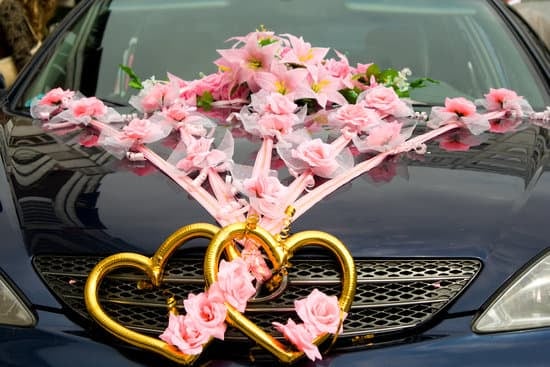Planning a wedding and reception is an exciting and important undertaking for any couple. From setting the date to choosing the venue, creating a budget, and designing the decor, there are many factors to consider to ensure that the big day is everything you’ve dreamed of. In this article, we will provide you with valuable tips and advice on how to plan a wedding and reception that reflects your unique style and personality while staying within your budget.
Setting the date for your wedding and reception is one of the first decisions you will have to make. We’ll offer helpful tips for choosing the perfect date that works for you and your guests, taking into account factors such as season, availability, and any cultural or religious considerations.
Once you have a date in mind, it’s time to start thinking about the ideal venue. We’ll discuss the key factors to consider when selecting a location that suits your vision and accommodates your guest list.
Creating a budget is another crucial aspect of planning a wedding and reception. Our article will provide you with effective strategies for budgeting, prioritizing expenses, and finding ways to save money without compromising on quality. Additionally, we’ll share insights on building the guest list, selecting vendors, designing the decor, managing day-of details, as well as final tips and advice for successfully planning your special day. Stay tuned for expert guidance on every step of the planning process.
Setting the Date
When it comes to planning a wedding and reception, one of the first and most important decisions to make is setting a date. The chosen date will impact the availability of venues, vendors, and even the guest list. Here are some tips for choosing the perfect date for your special day.
Consider Season and Weather
The season in which you choose to have your wedding can greatly impact the overall feel of your special day. Consider whether you want a spring wedding with blooming flowers, a summer wedding with warm weather, a fall wedding with beautiful foliage, or a winter wonderland wedding. Keep in mind how weather may impact travel arrangements and outdoor ceremonies or receptions.
Take Into Account Personal and Cultural Significance
Many couples choose their wedding date based on personal or cultural significance. Whether it’s the anniversary of when you first met, a family tradition, or an auspicious date according to your cultural beliefs, these factors can add extra meaning to your chosen date.
Check Vendor and Venue Availability
Once you have a few potential dates in mind, it’s important to check the availability of your desired venue and vendors. Popular venues and vendors tend to book up quickly, especially during peak wedding seasons, so it’s best to secure them as soon as possible once you have settled on a date.
By considering these tips when setting the date for your wedding and reception, you can ensure that everything falls into place seamlessly. Take time to discuss potential dates with your partner while also keeping in mind any personal significance or logistical considerations. With careful planning, you can choose the perfect date for your special day.
Choosing the Venue
When it comes to planning a wedding and reception, one of the most important decisions is choosing the venue. The venue sets the tone for the entire event and can have a big impact on the overall experience for both the couple and their guests. There are several factors to consider when selecting a wedding and reception venue that can help ensure a memorable and successful celebration.
First and foremost, couples should consider the size of the venue in relation to their guest list. It’s crucial to find a space that can comfortably accommodate all attendees while also allowing for activities such as dancing, dining, and socializing. Additionally, accessibility and parking should be taken into account to ensure that guests can easily get to and from the venue without any issues.
Another important factor to consider when choosing a wedding and reception venue is the location. Whether it’s a local or destination wedding, couples should think about the convenience of the location for both themselves and their guests. Access to nearby accommodations, transportation options, and local attractions are all important considerations that can enhance the overall experience for everyone involved.
Finally, couples should think about the overall aesthetic of the venue in relation to their vision for the wedding and reception decor. Some venues may require minimal decoration due to their natural beauty or architectural features, while others may serve as a blank canvas for creating a specific atmosphere or theme. Considering these factors can help guide couples toward choosing a venue that not only meets their practical needs but also aligns with their desired aesthetic for their special day.
| Factors | Considerations |
|---|---|
| Size of Venue | Accommodate guests comfortably |
| Location | Convenience for couple and guests |
| Venue Aesthetic | Fit with desired wedding decor |
Creating a Budget
When it comes to planning a wedding and reception, creating a budget is one of the most important steps. Here are some tips for effectively budgeting for your big day:
1. Determine Your Overall Budget: The first step in creating a budget for your wedding and reception is to determine your overall budget. Sit down with your partner and any family members who may be contributing financially, and decide on a realistic amount that you are comfortable spending.
2. Prioritize Your Expenses: Once you have determined your overall budget, it’s important to prioritize your expenses. Make a list of all the elements of your wedding and reception, such as venue, catering, dress, decorations, and entertainment, and decide where you want to allocate the majority of your funds.
3. Research Costs: Research the average costs for each element of a wedding and reception in your area. This will give you a better idea of how much you should allocate for each expense in your budget. Be sure to also leave some room in your budget for unexpected expenses that may arise.
4. Keep Track of Your Spending: As you begin to make deposits and payments for various aspects of your wedding and reception, be sure to keep track of your spending. This will help ensure that you stay within your budget and don’t overspend.
5. Consider Hiring a Wedding Planner: If managing all the details of creating a budget for the wedding and reception feels overwhelming, consider hiring a professional wedding planner who can help guide you through this process.
6. Be Flexible: Finally, be prepared to be flexible with your budget as you plan your wedding and reception. There may be areas where you need to adjust or reallocate funds as you make decisions about various elements of your big day.
By following these tips for creating an effective budget for your wedding and reception, you’ll be better prepared to navigate the financial aspects of planning this special event.
Building the Guest List
When planning a wedding and reception, one of the most important tasks is creating the guest list. It can be a daunting process, but with some careful consideration and organization, you can create a guest list that works for you and your partner. Here are some tips to help you through this essential step in the planning process:
1. Start with Immediate Family: Begin by listing out immediate family members, such as parents, siblings, and grandparents. These individuals are usually at the top of the guest list and can help guide your decisions for other guests.
2. Consider Budget and Venue Capacity: Before adding friends or additional family members to the list, consider your budget and the capacity of your chosen venue. It’s important to ensure that your guest list aligns with what you can afford and accommodates the space available.
3. Send Save-the-Dates Early: Once you have a preliminary guest list, sending out save-the-dates early can help give guests plenty of time to plan for your wedding day. This also allows you to receive early RSVPs, which can be helpful when finalizing details for the reception.
Managing RSVPs is another crucial aspect of planning a wedding and reception. With multiple guests to track and organize, it’s essential to stay on top of responses to ensure an accurate headcount for vendors and seating arrangements. Here are some tips for managing RSVPs effectively:
– Use an Online RSVP Tool: Consider using an online RSVP tool to make it easier for guests to respond promptly. This can also provide you with automated reminders for those who haven’t responded closer to the date.
– Keep Track of Responses: Develop a system for keeping track of responses received from guests, whether it’s through a spreadsheet or dedicated software. This will help you stay organized as you receive RSVPs.
– Follow Up with Guests: If there are outstanding RSVPs close to your deadline, don’t hesitate to follow up with those guests directly. This not only helps you finalize numbers but also shows that their presence is important to you.
By carefully managing both the creation of your guest list and handling RSVPs in an organized manner, you’ll be well on your way to a smooth planning process for your wedding and reception.
Selecting Vendors
When it comes to planning a wedding and reception, finding and hiring the right vendors is crucial to ensure that everything goes smoothly on the big day. The first step in selecting vendors is to determine what services you will need for your wedding and reception.
This can include a photographer, florist, caterer, musician or DJ, and more. Once you have an idea of the services you’ll need, it’s important to start researching potential vendors as soon as possible.
One of the best ways to find reputable vendors is through word of mouth. Ask friends and family members who have recently gotten married for recommendations. Reading online reviews and reaching out to wedding professionals can also help you find reliable vendors. Once you have a list of potential vendors, schedule meetings or consultations with them to discuss your vision for the wedding and reception.
When meeting with potential vendors, be sure to ask detailed questions about their experience, pricing, and availability. It’s also important to review their contracts carefully before making any decisions. Once you have selected your vendors, be sure to keep in touch with them regularly leading up to the wedding day. Clear communication is key to ensuring that everyone is on the same page and that your special day goes off without a hitch.
| Task | Details |
|---|---|
| Determine needed services | Photographer, florist, caterer, musician/DJ |
| Research potential vendors | Ask for recommendations, read reviews, reach out to professionals |
| Schedule meetings/consultations | Discuss vision, ask detailed questions about experience, pricing, availability |
Designing the Decor
When it comes to planning a wedding and reception, one of the most important aspects is designing the decor. The decor sets the tone for the entire event and creates a beautiful backdrop for all of your special moments. To begin, it’s crucial to consider your overall theme or color scheme for the wedding and reception. Whether you prefer a classic, romantic look or a modern, minimalist style, having a clear vision will help guide your decor decisions.
Once you have a theme in mind, it’s time to start brainstorming ideas for your wedding and reception decor. Consider elements such as floral arrangements, table centerpieces, lighting, and signage.
For example, if you’re having an outdoor garden wedding, you may want to incorporate lush greenery and soft pastel flowers into your decor. On the other hand, if you’re hosting a glamorous evening reception, you might opt for bold statement pieces and dramatic lighting to create a luxe ambiance.
In addition to choosing specific decor elements, it’s also important to think about how these pieces will come together to create a cohesive look. Consider creating mood boards or collages of inspiration to help visualize how each element will work together in the space. By carefully planning and curating your decor ideas, you can ensure that your wedding and reception will be beautifully styled and cohesive from start to finish.
Managing the Day-of Details
Creating a Detailed Timeline
One of the most important aspects of managing the day-of details for your wedding and reception is creating a detailed timeline. This timeline should include everything from when hair and makeup will be done, to the ceremony start time, to when the first dance will take place at the reception. It’s crucial to account for every aspect of the day to ensure that everything runs smoothly.
Coordinating With Vendors
Another key factor in managing the logistics of your wedding day and reception is coordinating with all of your vendors. From the florist to the caterer to the DJ, it’s essential that everyone is on the same page regarding timing and setup. Assigning a point person (such as your wedding planner or a trusted friend) to communicate with vendors can help ensure that everything goes according to plan.
Organizing Transportation
Depending on the location of your wedding and reception, organizing transportation for you, your bridal party, and even guests may be necessary. Whether it’s arranging for a limo or shuttle service, or simply providing detailed directions and parking information, making sure everyone knows how to get from point A to point B is crucial.
Finally, communication is key when it comes to managing the day-of details for your wedding and reception. Make sure that everyone involved – from vendors to bridal party members – knows what is expected of them and has clear instructions for their role in making your special day run smoothly. By being organized and proactive in planning these logistics, you can minimize stress and enjoy every moment of your wedding day.
Wrapping Up
In conclusion, planning a wedding and reception involves careful consideration, attention to detail, and effective organization. Setting the date, choosing the venue, creating a budget, building the guest list, selecting vendors, designing the decor, and managing day-of details are all crucial aspects of planning a successful wedding and reception.
One of the most important tips for successfully planning a wedding and reception is to stay organized. Keeping track of deadlines for booking vendors, sending out invitations, and finalizing details will help ensure that everything goes smoothly on the big day. Additionally, maintaining open communication with vendors and keeping an updated guest list will also contribute to a well-executed event.
Ultimately, when it comes to planning a wedding and reception, it’s crucial to remember that this is a special day to celebrate love with friends and family. While there may be challenges along the way, staying organized and focused on what truly matters will help ensure that the wedding day is everything the couple has dreamed of. With careful planning and attention to detail, couples can create a memorable celebration that reflects their unique love story.
Frequently Asked Questions
What Is the 30 5 Minute Rule for Weddings?
The 30 5 Minute Rule for weddings is a guideline that suggests scheduling 30 minutes for the ceremony and allowing 5 minutes for the processional, recessional, and any necessary transitions. This helps keep the wedding timeline on track.
What Is the Normal Schedule for a Wedding Reception?
The normal schedule for a wedding reception typically includes the grand entrance of the newlyweds, followed by toasts, dinner service, cake cutting, first dance, and then open dancing. It’s important to allow time for each activity while keeping guests entertained.
What Is the Best Way to Start Planning a Wedding?
The best way to start planning a wedding is by setting a budget and creating a timeline. Next, it’s important to secure a venue and choose a date. From there, decisions about theme, guest list, vendors, and other details can gradually be made.

I have been involved in marriages for over 20 years helping couples and singles understand more about them.





